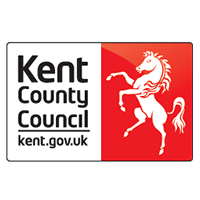Safer Internet Day 2021
At Deal Parochial CEP School online safety has a high profile and is valued as an important life skill in our modern, digital world. As well as being taught weekly throughout the school using ‘Education for a Connected world’ (the Government Framework), we also celebrate Safer Internet Day (SID) every year. This year, the theme was an Internet we can Trust.
As a result, our pupils are becoming knowledgeable internet users who can confidently keep themselves safe online. SID gives us the opportunity to develop greater awareness of the ever-changing digital horizons. The pupils learning is creative and motivational. Progression through the school can be seen as classes develop and deepen their understanding and skills.
Please take a look below at some of the work created by each class during SID this year. We have also gathered pupil voice and created a new Safer Internet Pledge.
Year R
Donaldson class watched the Digiduck video together and then role played the story. They talked about how they can keep themselves safe and that they should always ask their parents if there is anything they don’t understand.
The children were able to get into character and retell the story. They learnt about how to tell if something online was real or not real.
Year 1
Rosen class had a group discussion on how to decide whether information is true or false. They used the stories of ‘Detective Digiduck’, ‘Digiduck’s Big Decision’ and ‘Digiduck’s Famous Friend’ to help link this to how they can use these skills when using the internet or playing games online. Using key points from this activity, the class created their own poem on TRUST.
Pupil’s work shows clear understanding and that objectives were met in an engaging manner. Written work explained how they can be a trustworthy online friend and in turn, who they should trust on the internet.
Year 2
Dahl Class watched the online Safer Internet Day assembly on trust before speaking about what trust means. Pupils discussed ways of knowing if they can trust websites, how they should never talk to strangers and that they should only communicate with trusted friends online. The pupils also offered suggestions of who could help them if they were ever unsure or worried about something they had seen or done online.
Pupil’s work included posters and TRUST acrostic poems with key online safety messages.
Year 3
Browne Class watched the online assembly on Trust and read the story of Digiduck. Pupils made Digiduck masks and interviewed each other, demonstrating their online safety knowledge.
As a whole class, they created a TRUST acrostic poem and a Top Tips poster with pupil voice very clear and apparent.
The outcomes of pupil’s work demonstrate a clear understanding of the importance of these messages and that children were able to share and communicate it with each other.
Year 4
Walliams Class engaged in a range of activities to promote keeping themselves and others safe online such as discussing navigating the World Wide Web in order to access an internet they can trust. The class took part in the BBC live lesson and participated in the activities which helped the children know more about who to trust when online. Pupils could speak confidently and could identify different scenarios where safety could be compromised. Children shared their own experiences of negative experiences and what they learned from them. This was a powerful learning experience.
The class developed their own slogan: ‘Don’t trust everything! If you’re not sure – then don’t do it.’
Years 5 & 6
Pullman Class and Morpurgo Class enjoyed the same activities during Safer Internet Day. Pupils engaged in the interactive online assembly about not trusting everything you read online. This focussed on the reliability of sources and how to check whether something is trustworthy online. Pupils had to respond and explain their reasoning based on their own experiences and knowledge. Therefore, this enabled them to make important links between different scenarios and real-life situations. It was a great opportunity for them to listen, share and discuss.
Pupils chose from a range of activities including: –
Creating their own online safety quiz
Poster with Top Tips for how to stay safe online
Comic Strips showing an internet safety scenario
Stories where something goes wrong online and how the problem was resolved.
Bunting with key messages, rules to follow and top tips
Pupil’s work demonstrated clear understanding and gave the opportunity for them to deepen their knowledge.
Year 5
Whole School
In our live daily catch up, pupils were invited to share and talk about ideas for a whole school Safer Internet Pledge. This captured pupil voice and what they feel the key messages and learning needs to be in order to keep themselves safe while online.
Internet Safety Pledge
At Deal Parochial, we all agree to follow this Internet safety pledge.
We know that this will keep us safe online and will make us trustworthy internet users.
- Only message people you know.
- Always talk to a trusted adult if something online upsets you or you are not sure what to do.
- Keep your passwords secure and strong.
- Report any bad online behaviour.
- If you’re not sure, don’t do it. Always ask for advice!
- Check information carefully – is it real? Use other websites to check if it can be trusted.
- Use usernames and avatars to help protect your identity.
- Keep all your personal information private.
- Only post kind, encouraging comments online.
- Only meet people you know in real life – not those you have met online.

























